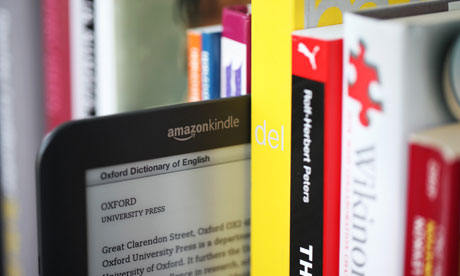
Is the professional book reviewer an anachronism? In a recent Harvard Business School study of nonfiction reviews, assessments in mainstream media outlets like this one and amateur ratings on Amazon largely converged. Assuming we can trust the questionable verdict of mere consensus, surely we could chuck the Review section and decide what to read purely by consulting peers online?
Full disclosure: I am a professional book reviewer. Moreover, who knows whether pros and amateurs would converge in evaluations of fiction, which are notoriously subjective, and more my bailiwick.
Nevertheless, traditional reviewers still serve a function. Few Amazon punters will explore a book with the depth of an 800-word review. Supportive quotes are a virtual obligation of the form in print, since especially appraisals of style require substantiation, yet most Amazon reviewers applaud or deplore an author's prose without providing examples, and you just have to take their word for it. Granted, critics are often scorned as clubby in-fighters either championing their friends or settling old scores. On the Guardian website this week, a former reviewer for an unnamed London newspaper explained that he'd probably lost the job because he disparaged Joseph O'Neill's "odious" Netherland (certainly one of the most overrated publishing successes of all time), adding, "most book reviewers are pretentious tits".
Yet many Amazon reviewers are just as snotty, pompous and snide as the worst of the "tits" in the Times Literary Supplement. A few small-minded pros may indeed be brown-nosing or out for revenge, but most critics with a shred of integrity refuse to review authors they know. Besides, Amazon suffers from corruption as well: friends-and-family boosters can inflate a listing with flattery; rivals and personal adversaries can pump it with poison. Some review sections may be suspected of assigning books whose publishers advertise in the paper, but Amazon's emailed "recommendations" are paid for by publishers, no doubt.
As for accuracy of assessment, Amazon reviews tend to gather populist momentum, coalescing into a group-think that discourages dissenters. Able to check online for what's already out there before filing, insecure professional critics are likewise prone to go safely with the popular tide. But the best reviewers will stick their necks out, sometimes defending a misunderstood book against a deluge of denunciation, or objecting that a fashionably crowned "masterpiece" isn't all it's cracked up to be.
Certainly critics are not all created equal. American papers now pay so appallingly that some reviewers no longer feel it behoves them to actually read the book, a little oversight that they expose by making gross errors in plot summary or by wildly mischaracterising a book's whole premise. Some critics are so at odds with your tastes that you go out of your way to read what they hate.
Still, when executed responsibly, reviewing requires many hours of reading that modest fees don't begin to compensate. We're not all grinding an axe or scratching a back. We try to put an author's work in context, to advance a more constructive argument than "I didn't like it", and to make a few halfway amusing observations along the way. We delight in bringing a fine book to your attention, while sparing you a trawl through dozens of conflicting comments by folks who can't spell. When we pan a work, hoping to save you time and money, we risk making an enemy of the author for life, while Amazon trolls can forever hide behind "woof25".
Anyway, why not read the Review section and go online? Then, if both the pros and the proles turn out to be wrong, these days you've got multiple forums in which to say so. I might defend the reviewing trade, but a handful of haughty hired hands no longer having the last word on books is not a bad thing. According to that Harvard study, professional critics are swayed by awards and hype (witness the mysterious chorus of acclaim for Netherland), while regular readers are less prone to being bamboozled and more open to new writers. So between the two sources, we should all find the ultimate Holy Grail: a decent book.
• Follow Comment is free on Twitter @commentisfree

